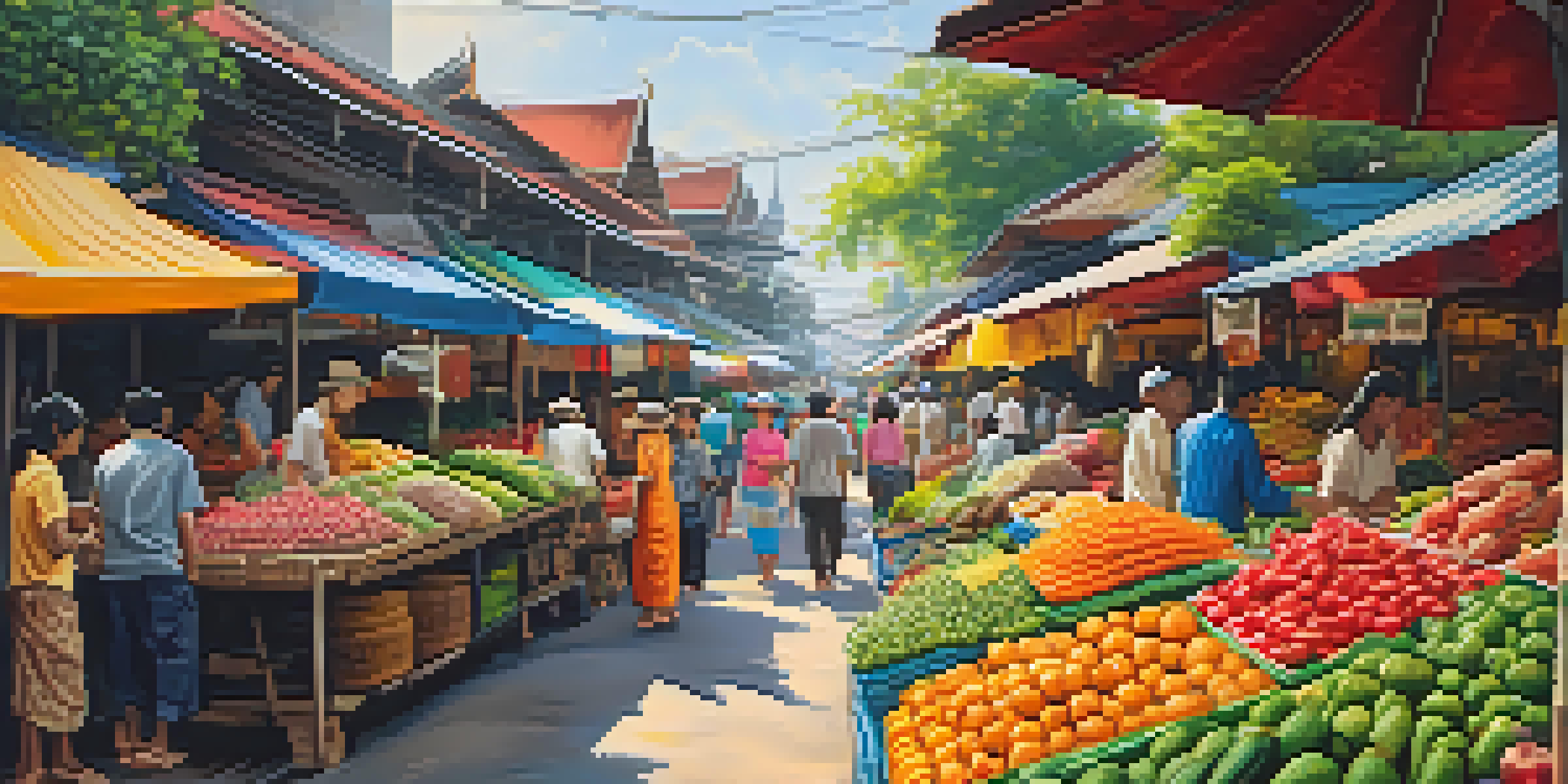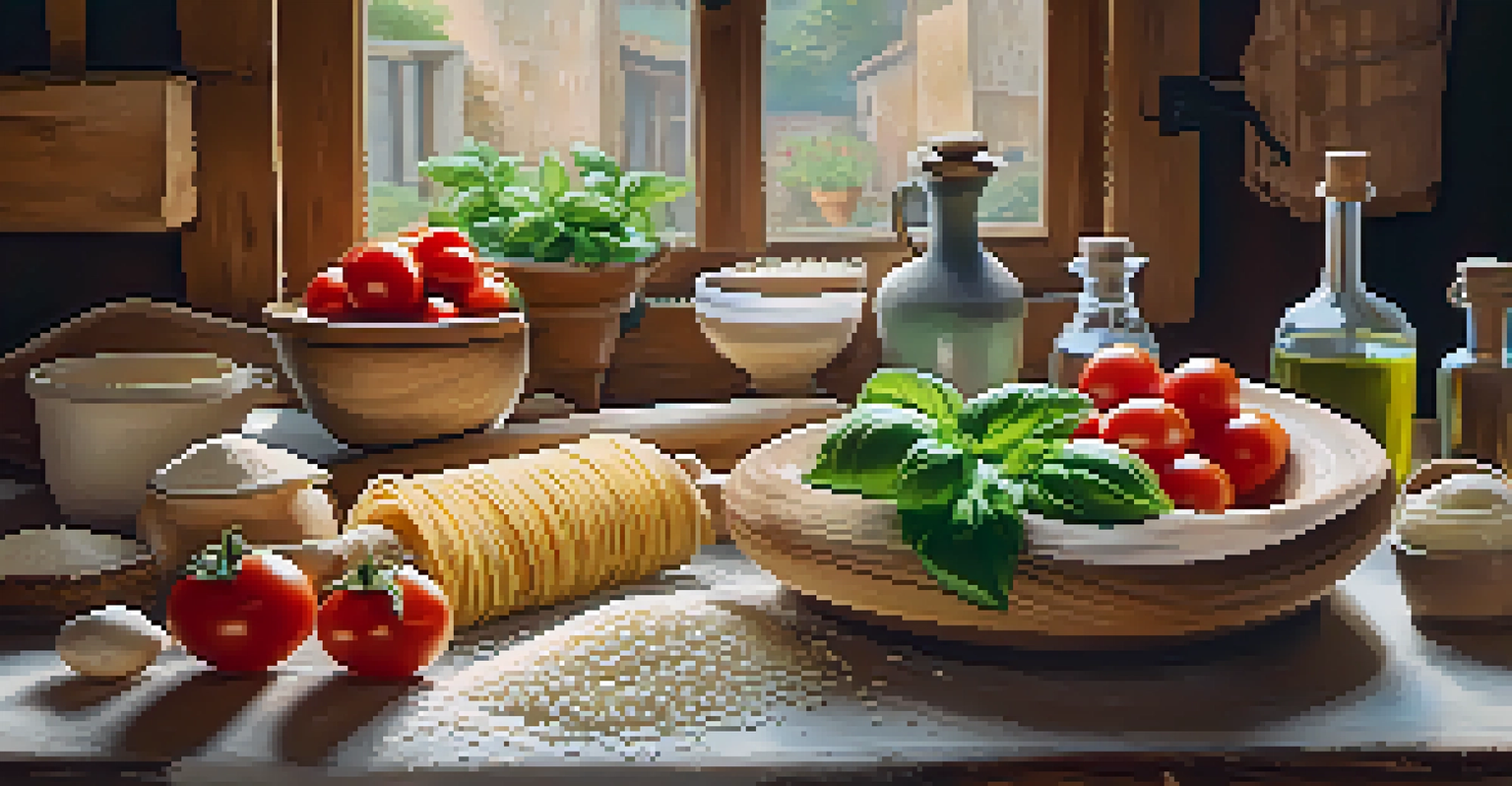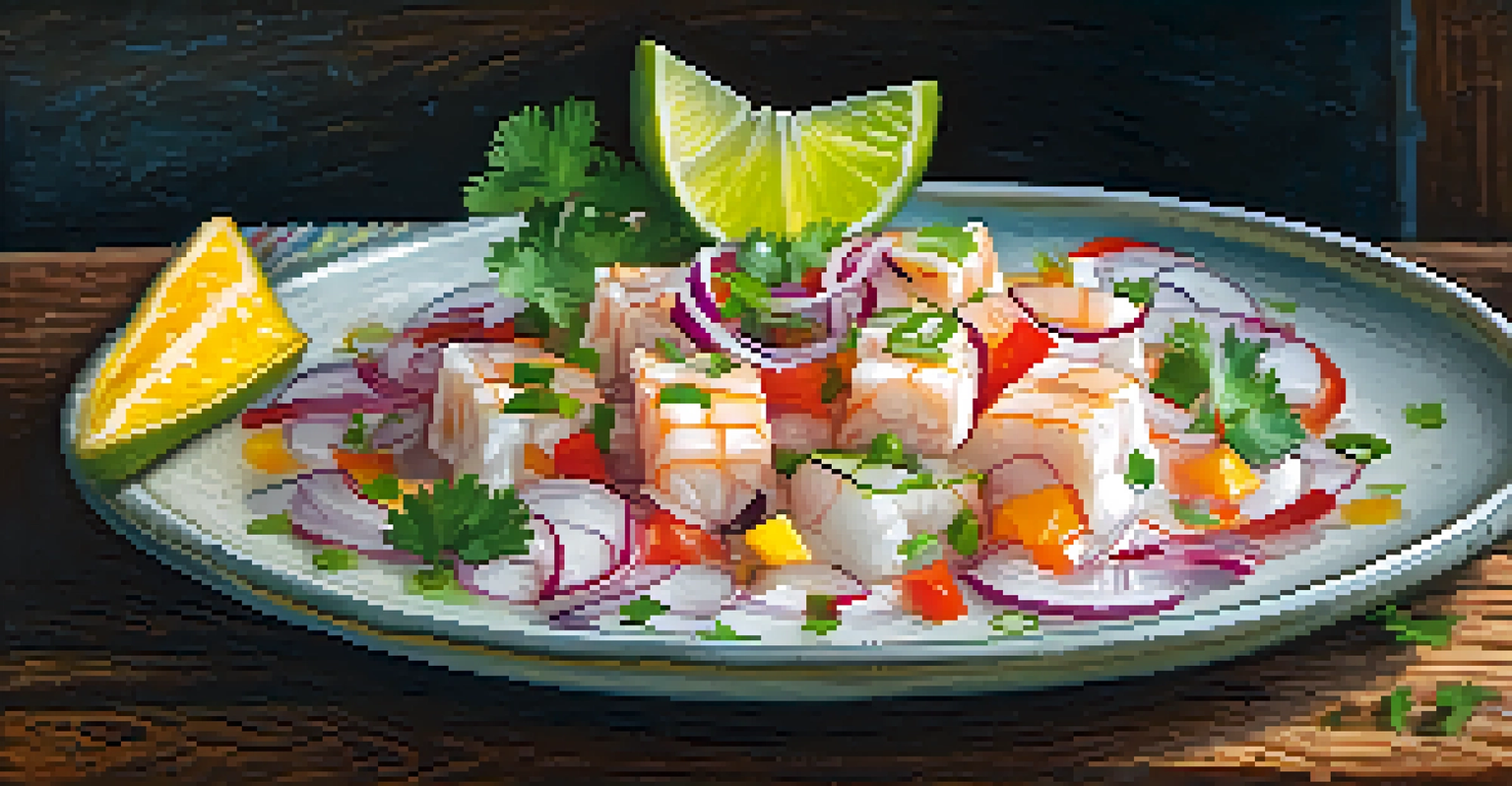Culinary Expeditions: Traveling for Food and Cultural Insight

The Rise of Culinary Tourism in Modern Travel
Culinary tourism has become a significant trend among travelers seeking more than just a typical trip. Instead of merely visiting landmarks, food enthusiasts are diving into local cuisines, eager to experience authentic flavors and cooking techniques. This shift reflects a broader desire to connect with cultures on a deeper level through their culinary practices.
Food is our common ground, a universal experience.
Travelers now use food as a lens to understand different cultures, from street food stalls in Bangkok to Michelin-starred restaurants in Paris. It’s not just about eating; it’s about the stories behind the dishes and the traditions that shape them. Such experiences often lead to a greater appreciation of the local way of life.
As culinary expeditions gain popularity, many travel agencies and tour operators are curating experiences that highlight food. These might include cooking classes, food festivals, or guided market visits that immerse travelers in the gastronomic landscape of their destination.
Identifying Your Culinary Travel Goals
Before embarking on a culinary expedition, it's essential to identify what you hope to achieve. Are you looking to indulge in local delicacies, learn new cooking skills, or explore food history? Understanding your goals will help shape your itinerary and ensure you get the most out of your journey.

For instance, if you're a budding chef, seeking out hands-on cooking classes in Italy might be your priority. Alternatively, if you're a food historian, visiting ancient markets and learning about traditional preservation techniques could be more appealing. Defining your culinary travel goals sets the stage for a meaningful experience.
Culinary Tourism's Growing Appeal
Travelers are increasingly seeking authentic culinary experiences to connect with local cultures and traditions.
Once you have a clear idea of your objectives, you can research destinations that align with your interests. Whether it’s a wine-tasting tour in Napa Valley or a spice market tour in Marrakech, knowing what you want will guide your choices and enhance your overall experience.
Top Destinations for Culinary Expeditions
Some destinations are renowned for their culinary offerings, making them ideal for food-focused travels. Countries like Italy, Thailand, and Mexico are celebrated not just for their iconic dishes but also for the rich cultural experiences they offer. Each region has its unique flavors and cooking styles, making them perfect for exploration.
Traveling – it leaves you speechless, then turns you into a storyteller.
In Italy, for example, a culinary expedition might involve regional pasta-making classes and tastings of local wines. Meanwhile, Thailand offers vibrant street food tours that introduce travelers to the art of balancing sweet, salty, and spicy flavors. Each destination provides a unique taste of its culture through food.
Additionally, emerging culinary hotspots like Peru and Georgia are gaining recognition for their innovative dishes and traditional recipes. These destinations invite adventurous eaters to explore new tastes while honoring their culinary heritage, proving that the world of food is ever-expanding and evolving.
The Importance of Local Ingredients
One key aspect of culinary expeditions is the emphasis on local ingredients. Understanding how geography and climate influence cuisine can enrich your culinary experience. Local ingredients not only enhance flavors but also tell the story of a region’s agricultural practices and cultural traditions.
For example, while visiting the coastal regions of Japan, you might discover how fresh seafood is integral to their culinary identity. Likewise, in the heart of Tuscany, you'll learn about the significance of olive oil and local wines. This connection to the land adds depth to your understanding of the food you enjoy.
Defining Your Culinary Goals
Identifying your culinary travel objectives helps shape your itinerary for a more meaningful journey.
Moreover, supporting local farmers and producers during your travels helps sustain culinary traditions and promotes economic growth within the community. Choosing farm-to-table experiences allows you to appreciate the journey of food from the earth to your plate, enhancing your culinary adventure.
Engaging with Local Chefs and Home Cooks
Nothing compares to learning from local chefs or home cooks when it comes to experiencing authentic cuisine. These individuals often possess a wealth of knowledge about regional dishes, preparation methods, and culinary traditions passed down through generations. Engaging with them can provide invaluable insights and hands-on experience.
Participating in a cooking class taught by a local chef can be a transformative experience. You'll not only learn how to make signature dishes but also hear stories about their origins and cultural significance. This personal connection deepens your appreciation for the food and the people behind it.
Additionally, seeking out home-cooked meals through platforms that connect travelers with local families can be a highlight of your trip. Sharing a meal in someone’s home often leads to heartfelt conversations, fostering a genuine connection to the culture and creating unforgettable memories.
Savoring Culinary Experiences Mindfully
Traveling for food is not just about indulgence; it’s also about savoring each experience mindfully. Taking the time to appreciate the flavors, textures, and aromas of your meals can enhance your culinary journey. Mindful eating encourages you to connect with your food and the stories it tells.
When dining out, try to engage with your surroundings—observe how dishes are prepared and presented. Ask questions about the ingredients or the chef’s inspiration. This engagement transforms a simple meal into a rich experience filled with learning and appreciation.
The Value of Local Ingredients
Emphasizing local ingredients enriches your culinary experience and supports sustainable practices within communities.
Additionally, practicing mindful eating at local markets or street food stalls allows you to connect with the culture on a deeper level. Enjoying food in the moment helps you fully immerse yourself in the culinary landscape, creating lasting memories that go beyond just tasting.
Documenting Your Culinary Journey
As you embark on your culinary expedition, consider documenting your journey. Keeping a food journal can help you capture the flavors, experiences, and connections you make along the way. Writing down your thoughts and impressions allows you to reflect on your experiences, making them even more meaningful.
Photography is another powerful tool for documenting your culinary travels. Capture the vibrant colors of a market or the intricate details of a beautifully plated dish to share with friends and family. These visuals can transport you back to your experiences and inspire others to embark on their culinary adventures.

Lastly, sharing your journey on social media or through a blog can connect you with fellow food enthusiasts. By sharing recipes, tips, and stories, you contribute to a community that celebrates the joys of culinary exploration, inspiring others to seek out their own gastronomic adventures.